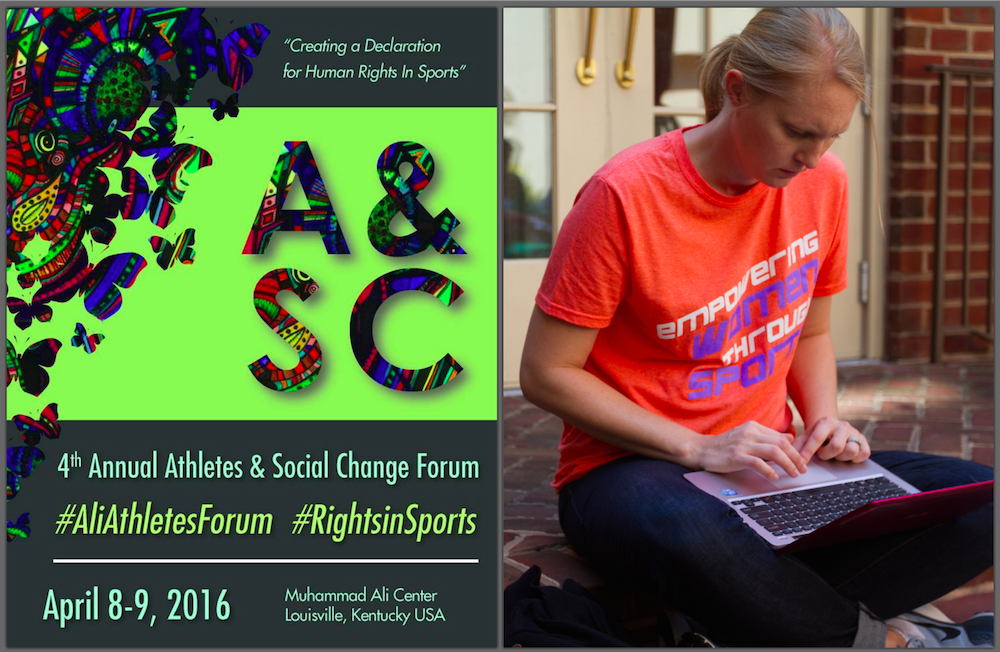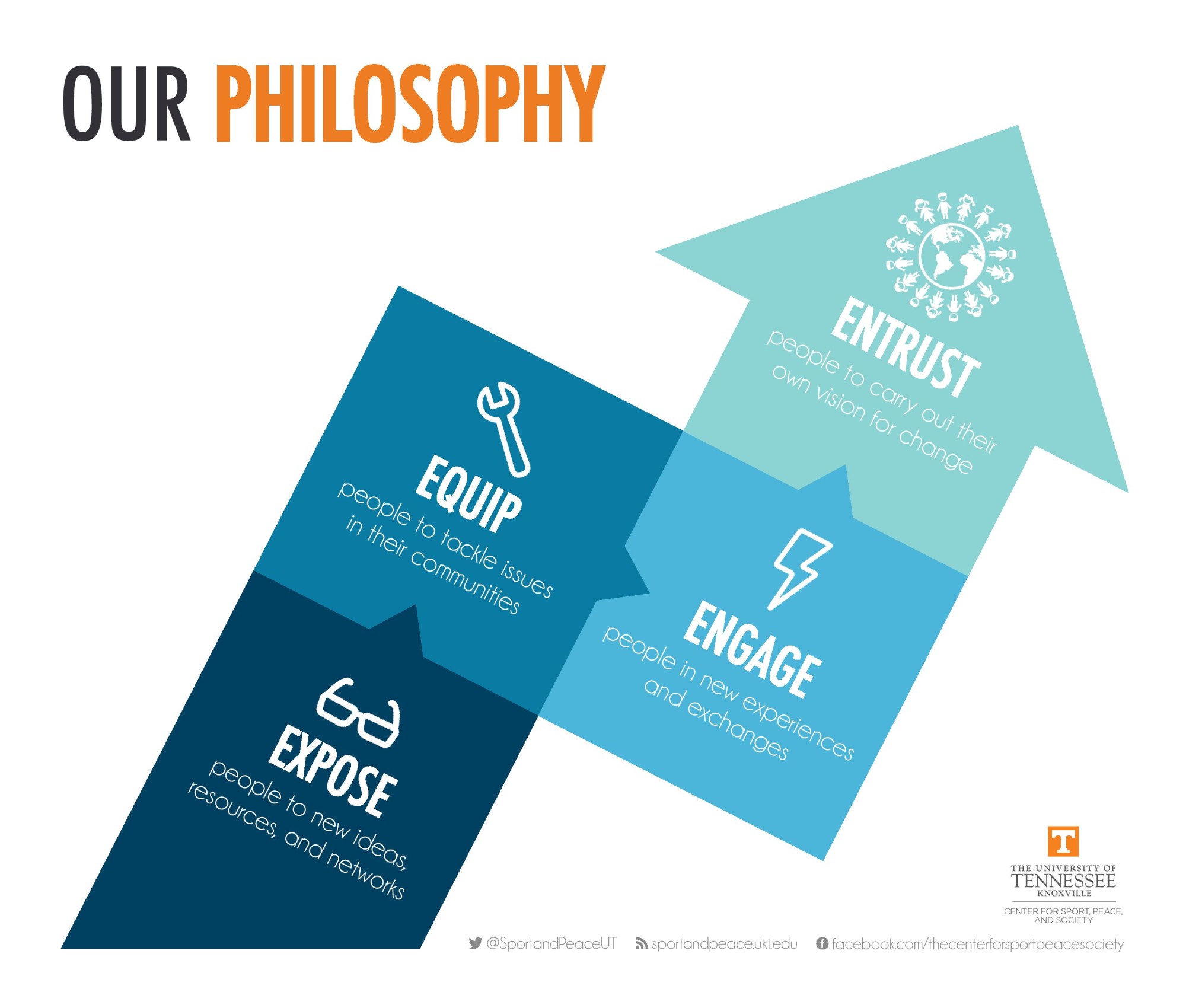On Saturday, April 9, Carolyn Spellings (“Dr. C”), monitoring and evaluation coordinator for the Center, was given the honor of presenting on behalf of our team at the 4th Annual Athletes and Social Change Forum.
The forum, hosted by the Muhammad Ali Center and held in collaboration with other universities, organizations, and leaders in the field of sport for development and peace, is a one-of-a-kind experience that spotlights the ways sport and its practitioners have and can continue to spark positive social change in local, national, and international communities.
For those who missed Dr. C’s presentation—”The Importance of Exposing, Equipping, Engaging, and Entrusting Local Audiences: Reflections from 20 Years of International Sports Development Experience”—there is no need to fret. We’ve included highlights below.
Let’s start with two questions that are a constant consideration for the Center in our work with both the Global Sports Mentoring Program and VOLeaders Academy:
1.What role do we, as cultural outsiders, have in sport for development and peace work in an international setting?
2.How can local leaders be empowered to create sustainable sport and physical activity opportunities for marginalized populations?
We take these questions quite seriously because we do not want to assume a paternalistic/or colonial view of the world or SDP work. Yet we have resources, knowledge, support networks, and experiences that many of the international participants do not have access to in their home countries/communities.
So, we seek to do this work in a culturally sensitive and culturally grounded manner; in a manner in which we view the international participants as experts on the issues in their communities as well as experts in solutions to those issues.
It is from 20 plus years experience in the international SDP sector and continually working through these questions that we have developed and refined the Center’s philosophy on changing communities.
The 4-E Model of Empowerment
Expose – participant to new people, resources and networks so that they can have access to political support, business support, academic support, peer support they may need when trying to create positive, sustainable change in their communities.
Equip – participants to tackle issues in their communities by:
- helping them identify a manageable issue that they can address through sport and physical activity
- helping participants identify gatekeepers (parents, religious leaders, community leaders, teachers, etc.), whose support in the community is critical
- helping participants develop leadership skills – communication, conflict resolution skills, etc.
Engage – participants in new experiences and exchanges in order to apply skills they are learning in two ways:
- Service learning: Hands-on, experiential learning, where they have an opportunity to apply newly developed skills in a real-world setting
- Reflection on the impact of these new experiences on their own personal and professional development. We have found this to be very helpful for the participants to internalize what they are learning and how they are growing
Entrust – participants to carry out their own vision for change through Action Plan development and presentations. Action Plans are concrete actions the participants will do when they return home to address a particular social issue. Oftentimes, these Action Plans are developed in conjunction with program mentors, peers, and Center staff. However, the purpose is not for the mentors, peers, or Center Staff to be a co-author of the Action Plan but to provide feedback and access to resources. It is critical for us that we view the participants as experts and give them a sense of ownership.
What is important is that by using the 4-E Model of Empowerment we are not telling the participants how to use sports to address a social issue. We are not giving them a blueprint of what has worked in an American or Western context, and telling them to duplicate or even adapt this blueprint. We are inviting the participants to create their own blueprints. We view them as the experts on what issues need to be addressed, as well as experts to the solutions. Our goal is to provide additional support, knowledge, resources, and skills so that through Center programs we have increased the capacity of local leaders to use sport for social good.
Since 2012, 86% of participants in the Global Sports Mentoring Program have implemented at least one component of their Action Plan. The 17 members of the GSMP 2014 class alone mobilized over 3,300 volunteers and coaches to implement their plans, and over 7,000 individuals have participated in the SDP programs they’ve developed.
Again, our philosophy of change at the Center is not to create communities that are dependent on us or on an outside group, but rather to increase the capacity of local leaders to create SDP programs that address a critical issue in their community. We believe that this philosophy of change is respectful to all individuals and culturally sensitive.

